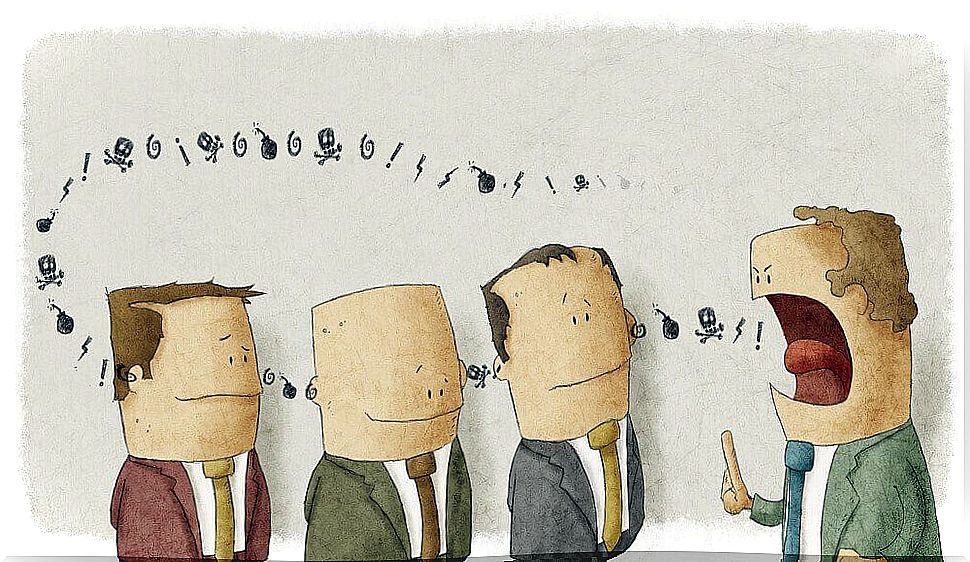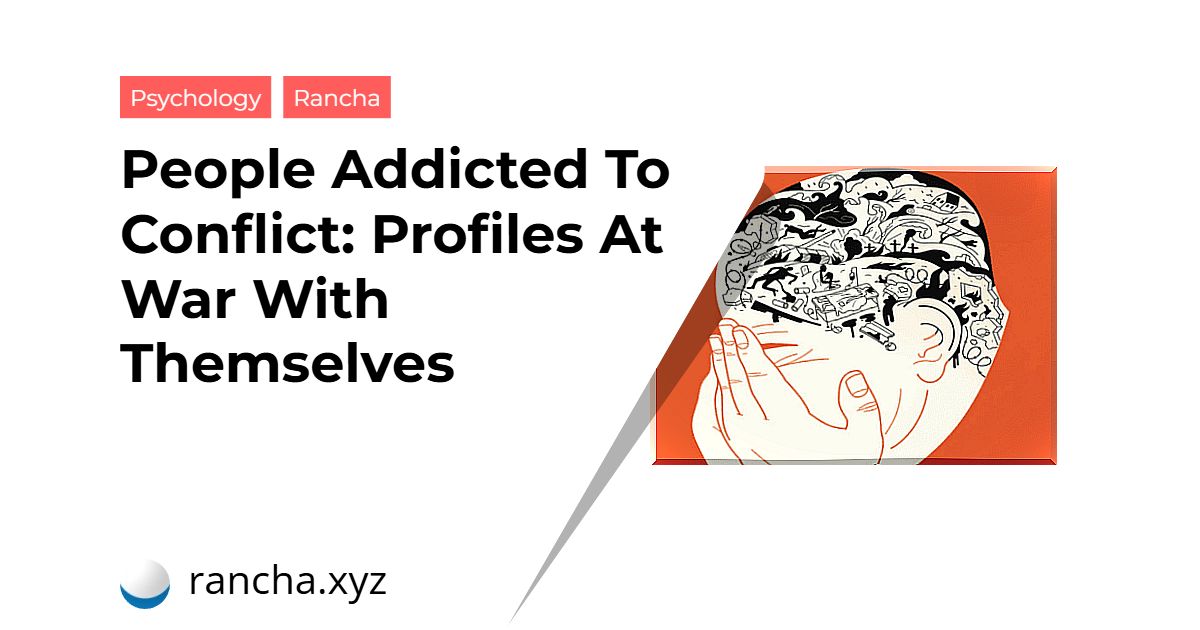Living with people addicted to conflict is like living in a minefield. They not only contaminate the environment with their discomfort and the anxiety of those who know that just a comment, a gesture or a word is enough for them to jump on us, but they also contaminate us with the tension of those who do nothing but fight wars. internal.
We all know or have lived at some time with a clearly conflicted personality. We’re not talking about that classic troublemaker who can be in any school classroom right now, trying to get over his teenage years and his identity crises. We refer to a very specific profile that is characterized by a behavior oriented only to destabilize, break the family balance and create disagreements between neighbors and real battles in any work scenario.
We are talking about an addiction, an almost compulsive search for conflict. Thus, more than considering something anecdotal, authors as relevant as Dr. Bill Eddy, mediator and creator of the institute for conflict resolution, warn us about something very specific . In our culture, this personality type is present in almost any sphere. We must, therefore, become aware of what is behind them in order to deal with the situation in the best way.

Conflict Addicted People, The Anatomy of Anger
We could say that the best strategy for dealing with people addicted to conflict is to avoid them. However, not everything in this life resolves itself by going out the back door, imposing distance or deleting someone from our contact list. As social beings, we are forced to live together and, more than that, it is possible that we ourselves are one of those people, someone who is used to resorting to conflict when there is something he doesn’t know how to deal with.
Social workers, lawyers, psychologists or psychiatrists often encounter this personality type. Because the people addicted to conflict, believe it or not, they are behind many processes, complaints, cases of gender violence and labor disputes. It is an obvious reality, a specific behavior in which someone tries to project their anger onto others.
Dr. Eddy estimates that if 15% of the adult population has some psychological disorder among those listed in the Diagnostic and Statistical Manual of Mental Disorders (DSM-V), at least 10% of that proportion evidences what he calls a “high conflict personality”. Let’s see what traits and behaviors are portrayed in this personality type.

What are people addicted to conflict like?
One thing we must understand from the beginning when we encounter a high-conflict personality is that the problem, dispute, or overreaction it projects upon ourselves is not real. The problem is not in us, but in these people, in this lack of inner balance, emotional management, psychological strength.
These are its characteristics:
- Your thinking style is all or nothing. These people don’t analyze, aren’t flexible, don’t take any time to weigh a situation. They limit themselves to generating a kind of response based on aggression or criticism when something does not please them or does not meet their expectations.
- Low effectiveness in emotional control. Some conflicted people have some control over their emotions, but they don’t do it for one purpose: to emotionally manipulate others. Others just project their anger and frustration onto other people until they create very stressful atmospheres.
- They destabilize environments and people. Conflict addicts are specialists in spreading rumors, criticizing, employing behaviors of domination, humiliation, continuous offense.
- Non-existent resistance to frustration and guilt-seeking. The conflict addict does not tolerate that something does not go or is not as he or she expects. Not only does he get frustrated, he turns that frustration into anger and looks for culprits to project his anger.
- Your thoughts are always dominated by negative emotions.
- They show an inability to reflect on their own behavior.
- Difficulty empathizing with others.
- They avoid any kind of responsibility for the problem or for looking for a solution.

How to deal with people addicted to conflict?
There will be more conflicted people and people you can argue with a little more. However, in many cases, we are forced to live with profiles that are as complex as they are exhaustive, and that is when it is necessary to take the appropriate measures. A first aspect that should not be left out is the following: let us avoid considering reactions as something strictly personal, because in reality, this profile is in conflict with itself.
Therefore, and as far as possible, let us no longer wear out giving explanations and arguing with someone who cannot and does not want to respond to reason . Let’s not get carried away by storms and limit ourselves to identifying them to deactivate the impact they may have on us.
Furthermore, from a clinical point of view, it is also important to talk about how to intervene . The DSM itself is studying the possibility of including the high conflict personality as a type of disorder to consider. Therefore, we must not overlook the importance of receiving specific psychological treatment. In this way, we could work on aspects as relevant as emotional control, control and the origin of anger, or how to learn to relate to others through empathy and more respectful behaviors.
We will conclude by saying that no one seeks to have a conflicted personality. It is important to establish certain limits, of course, but we must also consider that often, behind this uncomfortable mask of “problem-searching”, there is a background of complexities and hidden wounds that demand attention.
 rancha.xyz Be free to choose their own route to self-knowledge, health and balance of body and soul.
rancha.xyz Be free to choose their own route to self-knowledge, health and balance of body and soul.




